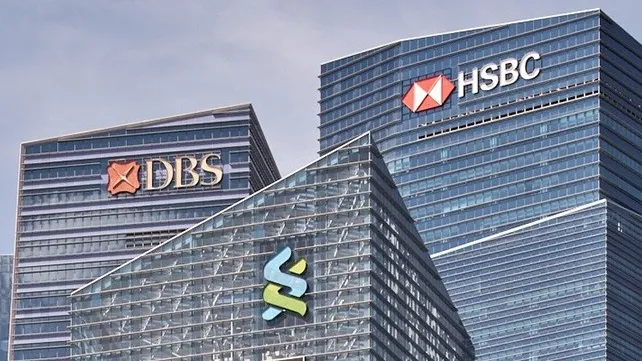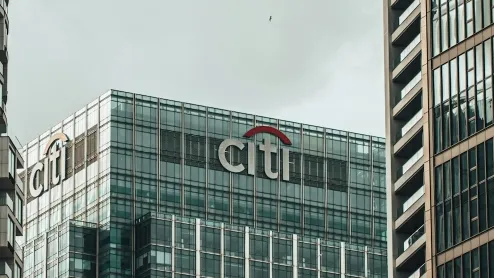
Singapore banks foster growth, boost employee well-being
Asian Banking and Finance’s new ranking of Singapore banks reflects top notchers' steady growth and adaptability to changing landscape.
Banks in the lion city have continued to grow for the fiscal year 2022, garnering a 3.4% year-on-year (YoY) increase based on the Asian Banking and Finance’s annual bank rankings.
The bank rankings, which reflect the employment hiring situation of select banks in Singapore, had a change in methodology. Banks in the list have been categorised according to percent changes from the previous year’s tallied figures.
This facilitated a sounder way of ranking them amidst the difference in their respective employee populations.
With the new ranking process in place, Credit Agricole CIB. registered the highest annual increment of 20.3% YoY to 1,686 employees, taking the top spot in terms of employee growth.
The 2023 ranking had HSBC Banking Corp. at No. 2 with a growth rate of 20.0% to increased employment of 3.890, followed by United Oversea Bank (UOB) at No. 3 with an increment of 11.7% to 10,056 employees. Trailing them at No. 4 was Maybank Singapore with a 5.1% growth and 2,101 employees.
Bucking the growth trend, banks which saw big dips were UCO Bank (11.9% to 37), State Bank of India (5.6% to 117), and DBS Bank (4.6% to 12,000).
In terms of tally count, the top five banks in order would have started with OCBC, DBS Bank, UOB, Citi Singapore, and Standard Chartered.
However, in the case of Citi Singapore and Standard Chartered, Asian Banking and Finance did not receive any response in press time.
Notably, in a report by Bloomberg made last 8 June, Standard Chartered is implementing targeted job cuts in Singapore, Hong Kong, and London as part of its cost reduction strategy, aiming to save about $1.35b by 2024.
The bank recently initiated job reductions in middle office areas such as human resources and digital transformation in Asia. This information comes from undisclosed sources who wish to maintain privacy.
Furthermore, according to another source, some junior staff members will also be affected. While the exact figure is yet to be determined, the total number of job cuts is expected to exceed 100.
Despite the outgoing and incoming talents in this major industry, it is vital to understand the key trends in the hiring environment because employees naturally come and go for various reasons.
Hence, it is the responsibility of employers to keep in check what makes employees stay.
Employees’ well-being
In recent years, more Singaporeans find their personal well-being of top importance. According to a survey by professional services firm Aon, about 78% of Singapore-based employees stated their well-being has become a bigger priority since 2020.
This was above the region’s average of 48% stating that their well-being has risen atop their priority list. However, only 35% of Singapore employers rated the overall well-being of their company as “excellent or very good.”
Asian Banking and Finance reached out to Singapore’s banking institutions to find out how they can improve their employees’ health and skills, and secure their future in the work environment.
Maybank Singapore, for example, is particularly concerned about seeking the success of its employees, according to its head of human capital, Wong Keng Fye.
He emphasised that human beings now purposefully look for meaning in their careers and do not just seek plain employment. “I think it’s important that employees recognise and have a sense of purpose in whatever they want to do,” Wong said.
He said employees look beyond just the dollars and cents. “They’re looking at the ratio of quality of life, sustainability and if the organisation is providing opportunities, career development, and of course, will enrich their ability to work from home,” Wong added.
In another study by Randstad – a global human resources services firm – results showed that about 48% of Singaporeans would not take a job if it does not offer a hybrid set-up or the option to choose whether to work at home or in the office.
UOB is one of those financial institutions that has come to value the work-life balance setup. “UOB is the first Singapore bank to officially implement our hybrid working policy on a permanent basis for our employees in July 2022, offering flexibility for colleagues in eligible roles to work from home or at a location other than the assigned work within the city of their work location,” said Dean Tong, head of Group HR at UOB.
Now that more than 50% of UOB’s employees practise its hybrid working policy, its internal annual engagement survey reflected a large increase in productivity scores, said Tong.
Employers adapt
It is very much emphasised by these human resource managers that a good working environment would equate to a productive workforce. But they also agree that it is of utmost importance to see a person beyond their employment.
ZiYing Wu, Head of Human Resources Crédit Agricole CIB Singapore, told Asian Banking and Finance that they launched the Employee Assistance Programme (EAP) for their staff to avail themselves of confidential and professional services.
If employees get to experience personal or work-related stresses, the EAP is an avenue for them to have any mental or physical health issues addressed.
Similarly, Maybank, UOB and HSBC Singapore have each established a counselling service for their workforce to remedy the damaging effects brought upon by the COVID-19 pandemic on people’s lives.
Noting the opportunities they have opened for employees to access mental health support, Wong said: “We also try to train a group of Maybank bankers... to respond and advise them.”
Over the past few years, Maybank has had over 10 employees across various departments trained to counsel staff with privacy afforded utmost value and respect. “Of course, we want to know if we can help. But sometimes the staff doesn’t want to talk, and we respect the privacy of others if they choose not to,” said Wong.
Working environment
According to these Singapore bank employers, there has been a higher demand for jobs within the environmental, social and governance (ESG) landscape as well as the technology sector.
UOB’s Tong observed that roles in technology, anti-money laundering (AML) compliance, sales, services and operations saw greater attraction for applicants.
“We are making sure our employees are equipped with future-ready skills, too. This can be seen through the various programmes that we have implemented such as our group-wide flagship training programme, Better U, to invest in upskilling and reskilling our people,” Tong said.
UOB also began its Group Technology and Operations Academy last year which upskills and certifies their estimated 6,000 technology and operations workforce in areas such as cybersecurity, software and infrastructure, Tong said.
On the other hand, Crédit Agricole CIB’s Wu said that more job opportunities in ESG for the banking sector signal the greater push toward carbon neutrality. Notably, the French international bank said it hired its very first Singapore-located sustainable banking teammate in 2022.
“As we see a growing importance and need in this area, we envision that this could be the start of a growing sustainable banking team in Singapore, enabling us to better support our clients with their sustainable finance strategy in line with our bank’s leadership as a pioneer in sustainable finance and our group’s targets to accelerate the transition to achieve carbon neutrality by 2050,” Wu said.
Mukul Anand, head of human resources at HSBC Singapore, said the bank is committed to boosting the skills of young talents in Singapore. Its Global Graduate programme participants in Singapore surged 35% in 2023, whilst university and polytechnic work placement programmes also jumped 33%.
“Our people are our greatest asset and we are committed to helping them develop skills for the future,” said Anand.
| 2023 Ranking | Bank | % change | Number of employees end-2022 | Number of employees end-2021 | 2021 rank | 2022 CEO/Country head |
| 1 | CREDIT AGRICOLE CORPORATE AND INVESTMENT BANK | 20.3% | 1,686 | 1,402 | -- | Jean-Pierre Michalowski |
| 2 | HONG KONG AND SHANGHAI BANKING CORPORATION | 20.0% | 3,890 | 3,242 | -- | Wong Kee Joo |
| 3 | UNITED OVERSEAS BANK | 11.7% | 10,056 | 9,000 | -- | Wee Ee Cheong |
| 4 | MAYBANK SINGAPORE | 5.1% | 2,101 | 2,000 | 5 | John Lee |
| 5 | OVERSEA-CHINESE BANKING CORP | 4.7% | 12,000 | 11,461 | -- | Helen Wong |
| 6 | RHB Singapore | -0.8% | 646 | 651 | -- | Danny Quah |
| 7 | DBS BANK | -4.6% | 12,000 | 12,585 | 2 | Piyush Gupta |
| 8 | STATE BANK OF INDIA | -5.6% | 117 | 124 | 4 | Jamneshwar Pamidimukkala |
| 9 | UCO BANK | -11.9% | 37 | 42 | -- | Gourab Chatterjee |
| -- | CITI SINGAPORE* | No data | ~8,500 | ~8,500 | -- | Tibor Pandi |
| -- | STANDARD CHARTERED BANK* | No data | 6,000 | 6,000 | -- | Patrick Lee |
| -- | BNP PARIBAS* | No data | 2,200 | 2,200 | 1 | Joris Dierckx |
| -- | BANK OF CHINA* | No data | 955 | 955 | 3 | Cheng Jun |
| -- | CIMB BANK* | No data | 925 | 925 | -- | Victor Lee Meng Teck |
| -- | MIZUHO BANK* | No data | >700 | >700 | -- | Guan Yeow Kwang |
| -- | ICICI BANK* | No data | 90 | 90 | -- | Sachin Kumar |
| -- | BANK OF INDIA*' | No data | 77 | 77 | -- | Geetha Nagarajan |
| GRAND AVERAGE/TOTALS | 3.4% | 61,980 | 59,954 |
LEGEND
*Info retained from 2022 rankings
~ About
< Less than
> More than



















 Advertise
Advertise












